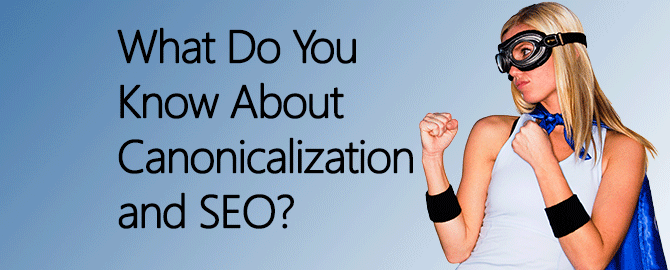As part of any effort to get the best search engine optimization on any website, it is important to eliminate any content that Google might view as duplicate, for many reasons. The concept of “canonicalization,” or allowing spiders to index only the most relevant pages is actually a fairly simple one; however initially, it can be a challenge to understand. Canonicalization or its lacking can drastically affect a website’s SEO, making it essential for a website owner to understand and work with the best SEO company to reduce any duplicate links or content that might confuse Google.
What Is Canonicalization?
Canonicalization is the process by which web page content and website links are created unique and not duplicated in any way or form on a website. For example, canonicalization errors can occur when a URL appears in some places as https://www.websitepage.com, https://websitepage.com, or https://websitepage.com/index.html – or other variations of page URLs that technically lead to the same page even though they are alphanumerically different. This also refers to the slashes sometimes found at the end of URLs, like in https://www.websitepage.com/.
How Does This Happen?
In most cases, the differences in web page URLs is not intentionally done by web designers themselves, which is why these little differences are easy to overlook. Such differences happen based on default web server settings, since tdifferent servers do not always assign the exact same URLs to loaded pages. The end result is different URL’s that are the same, yet are viewed by indexers as separate pages.
Why Is Canonicalization Important?
Based on the way canonicalization errors occur and how they are viewed by spiders and bots, the main significance is loss of the best SEO. When the same page can be accessed by multiple URLs, the traffic to that page is then split across those various URLs. When SEO is involved, it is like having different pages with the same content, each only getting a portion of web page traffic rather than one URL and one page getting all website traffic. Higher traffic gives better search engine optimization; traffic split across different URLs is reduced.
When there are multiple URLs that lead to the same page, spiders and bots react as if there are multiple pages. They must then determine which URLs are most valid, most recent, or most relevant, which slows page loading.
How Should Canonicalization Errors Be Corrected?
The first thing to do is set all web servers to the chosen domain for the website so that canonicalization errors do not occur. The second thing is to use a standard format for all URL’s on a website; consistency is the key. Where these errors already exist, there are various ways they can be remedied with 301 redirects, adding rel=canonical tags to the HTML heads of web pages, and with various web tools available to correct canonicalization errors.
Regardless of how it is done, correcting canonicalization errors will boost SEO results, as websites are no longer competing with themselves for incoming traffic. Canonicalization issues are an important factor in achieving the best SEO for a website. To determine if canonicalization errors exist and correct any that do, website owners should work with the best search engine optimization company that is experienced in correcting this problem!
Want The Best SEO In College Station Texas?
Marketing Heroes Can Rock Your Website With The Best SEO!
Call (979) 599-9195 – Today!
Related Articles:
Why You Must Carefully Handle 301 Redirects For Best SEO!
Social Media – How To Use It To Boost Your Sales!
Why You Must Manage Your Local Reputation!
The Two Important SEO Aspects Of Facebook Advertising!
Retargeting – What Is It and Why Is It Important To SEO?
